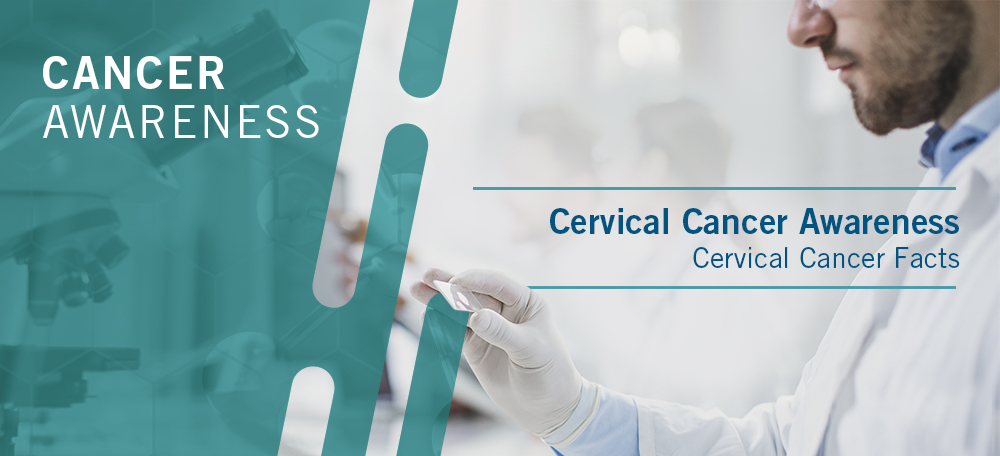
Approximately 13,000 women in the United States are diagnosed with cervical cancer annually, leading to an annual estimated 4,000 deaths.1 Cervical cancers are comparatively rare in the United States, with about 0.8% of new cancer cases classified as cervical, contributing approximately 0.7% of cancer deaths yearly.1 Worldwide, cervical cancer is the fourth most frequently diagnosed cancer and the fourth leading cause of cancer death, with an annual estimated 527,600 cases and 265,700 deaths.2
Nearly all cervical cancers are caused by high-risk (oncogenic) human papilloma virus (HPV).3,4 HPV subtypes are broadly classified as high-risk (leading to cervical malignant transformation) or low-risk (leading to benign lesion development).5 The high-risk HPV subtypes, HPV 16 and HPV 18, are the most common subtypes found in cervical tumors. Together, HPV 16 and HPV 18 are the causative agents for greater than 70% of invasive cervical cancers worldwide.5,6 It has been estimated that approximately 10% of the worldwide population have a cervical HPV infection at any given time.7 In spite of this high infection rate, nearly 90% of such infections are naturally cleared by the body within a year or two, and only women with persistent high-risk HPV subtype infections are at risk of progression to cervical cancer.8,9 The slow progression of the disease combined with the availability of screening and HPV vaccination is why many experts consider cervical cancer to be nearly completely preventable.10 Invasive cervical cancer can often be successfully treated if detected at an early stage.
As part of our promise of “Fighting Cancer, One Slide at a Time,” Biocare Medical is proud to offer key high-quality immunohistochemistry (IHC) and in situ hybridization (ISH) reagents that aid in early and accurate classification of cervical tumors and presence of HPV.
Key Antibodies for Cervical Cancer
| Product Name | Clone | Catalog Number |
|---|---|---|
| HPV-16* | CAMVIR-1 | CM 186 |
| HPV Cocktail Broad Spectrum* | BPV-1/1H8 + CAMVIR-11 | CM 177; PM 177 |
| CA 125 | OC125 | CM 101; PM 101 |
| Carcinoembryonic Antigen (CEA {M}) | COL-1 | CM 058; PM 058 |
| p63 | 4A4 | CM 163; PM 163; IP 163; OAI 163; VP 163 |
| CD117/c-kit | EP10 | CME 296; PME 296; IP 296; OAI 296 |
| MCM2 + TOP2A | OT18A11 + UMAB146 | API 3181 |
| Topoisomerase II alpha | O31 | ACI 3045; API 3045 |
| VEGF* | EP1176Y | CME 356 |
*Research Use Only (RUO)
Key probes for detecting HPV
| Product Name | HPV Target Subtype (Classification) | Catalog Number |
|---|---|---|
| HPV Type 16 Probe (Digoxigenin)** | HPV 16 (High-Risk) | BRA 4047 |
| HPV Type 18 Probe (Digoxigenin)** | HPV 18 (High-Risk) | BRA 4048 |
| HPV Type 31 Probe (Digoxigenin)** | HPV 31 (High-Risk) | BRA 4051 |
| HPV Type 51 Probe (Digoxigenin)** | HPV 51 (High-Risk) | BRA 4052 |
| HPV Type 6 Probe (Digoxigenin)** | HPV 6 (High-Risk) | BRA 4045 |
| HPV Type 11 Probe (Digoxigenin) | HPV 11 (High-Risk)** | BRA 4046 |
**Analyte Specific Reagents (ASR) for clinical Laboratories to use in developing laboratory developed tests.
Clinical References:
1. Siegel RL, Miller KD, Jemal A. CA Cancer J Clin. 2017 Jan;67(1):7-30.
2. Torre LA, et al. Cancer Epidemiol Biomarkers Prev. 2017 Apr;26(4):444-457.
3. http://www.nccc-online.org/wp-content/uploads/2019/01/10ThingsHPV_CCAM-1.pdf
4. https://www.cdc.gov/cancer/knowledge/publications/fact_sheets.htm
5. de Sanjose S, et al. Lancet Oncol. 2010 Nov;11(11):1048-56.
6. Li N, et al.. Int J Cancer 2011;128:927–35.
7. de Sanjose S, et al. Lancet Infect Dis 2007;7:453–9.
8. Shvetsov YB, et al. Clin Infect Dis 2009;48:536–46.
9. Moscicki AB, et al. Vaccine 2012;30Suppl 5:F24–33.
10. Committee on Adolescent Health Care Immunization Expert Work Group. Obstet Gynecol 2015;126:e38–43.

